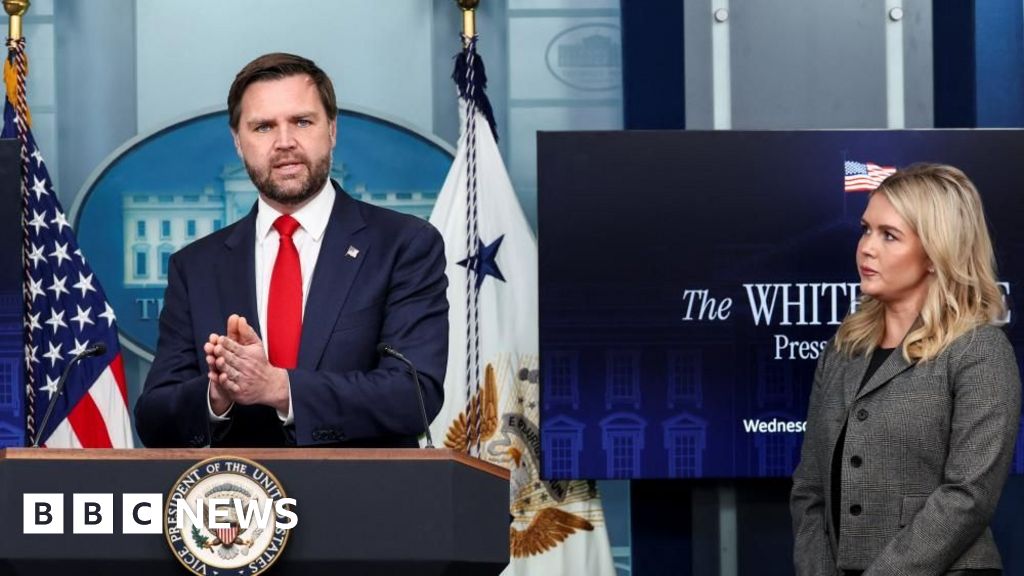We are getting a lot of questions about the U.S. government shutdown that began October 1, 2025, after a bipartisan failure to reach a deal to fund the government. The main point reporters are trying to fact check is whether or not extending Advanced Premium Tax Credits (APTC) and reversing health care cuts in H.R. 1 would increase health coverage for undocumented immigrants.
The answer is no.
Public comments by leaders in Washington have generated much of the confusion. Vice President JD Vance tweeted that “Democrats are about to shut down the government because they demand we fund healthcare for illegal aliens” and House Speaker Mike Johnson issued a press release stating Democrats want to “reinstate free healthcare for illegal aliens paid by American taxpayers.” These statements have no discernable factual basis.
As we have written repeatedly, undocumented immigrants have never been eligible for full Medicaid coverage. In fact, even many lawfully present immigrants are not eligible for Medicaid. They have also have never been eligible for premium tax credits to purchase Marketplace plans, and cannot even purchase a private plan on the Marketplace with their own money.
As part of the shutdown negotiations, Democrats requested extension of enhanced Marketplace premium tax credits, first enacted in 2021, that expire at the end of this year and reversal of the massive Medicaid, Marketplace, and other health care cuts in H.R. 1 (the legislation known as the One Big Beautiful Bill Act). However, neither of these priorities, if enacted, would somehow newly provide or reinstate Medicaid or Marketplace subsidy eligibility for undocumented immigrants (they will continue to be ineligible whether it happens or not).
Let’s look at the facts.
Extending enhanced Marketplace premium tax credits would not benefit undocumented immigrants. Enhancements to the tax credits available to purchase Marketplace plans expires this year, unless Congress takes action, and will result in 4.2 million more uninsured people based on an estimate by the Congressional Budget Office (CBO). Premium tax credits have always been available only to U.S. citizens and immigrants who are lawfully present. Premium tax credits have never been available to undocumented immigrants (this is true with or without H.R. 1). Extending the enhanced premium tax credits would have no effect on undocumented immigrants. It would only help protect the coverage of 4.2 million individuals, by allowing low- and moderate-people, mostly U.S. citizens with some additional lawful immigrants, to continue to afford their Marketplace premiums.
Repealing H.R. 1 also would not increase coverage for undocumented immigrants. There are only two sets of provisions in H.R. 1 related to immigrants. The first is a set of parallel provisions in Medicaid, Medicare, and the Marketplace restricting the eligibility of some groups of lawfully present immigrants, such as refugees. My colleague Kelly Whitener has summarized the impact on lawfully present immigrants. These provisions do not impact undocumented immigrants; and again, undocumented immigrants are not even enrolled in these coverage programs in the first place. Of the 10 million people who the CBO estimates will lose coverage under H.R. 1, the lawfully present (not undocumented) immigrants who lose coverage will be a relatively small group compared to the vast majority of people who lose coverage that will be U.S. citizens. In short, repealing H.R. 1 would primarily benefit U.S. citizens, a smaller group of lawfully present immigrants, but would have no impact on the undocumented who will remain ineligible.
The second provision in H.R. 1 related to immigrants does impact state funding that is at least related to undocumented immigrants, but it does not actually impact coverage. Under federal law, emergency rooms must stabilize medical emergencies, regardless of immigration status. Under Emergency Medicaid, states must reimburse hospitals and other providers for emergency services provided to individuals who would be eligible for Medicaid (i.e., they are low income), but haven’t proven a qualifying immigration status (for example, they could be a qualified immigrant who can’t prove their status, a lawful immigrant who is not in a qualifying status, or undocumented). About half of this Emergency Medicaid funding reimburses labor and delivery services for the births of U.S. citizens. H.R. 1 reduces the federal matching funds for states for some of this emergency care. This provision does not actually change coverage for immigrants, and indeed the CBO scored it as having no impact on coverage, because hospitals must still provide the health care, and states must still pay them for the health care, it’s just that the federal government will pay a smaller share of the cost. In other words, it’s just a cut to federal funding for states to reimburse providers furnishing emergency services (which is still required).
So ultimately, neither extending APTCs nor repealing H.R. 1 will increase or reinstate coverage for undocumented immigrants. These two actions would, however, preserve coverage for about 14.2 million people, the vast majority of whom are U.S. citizens with the smaller remainder being lawfully present immigrants.
[SRC] https://ccf.georgetown.edu/2025/10/02/factchecking-on-medicaid-coverage-for-immigrants-government-shutdown-edition/
 Visit the website
Visit the website






